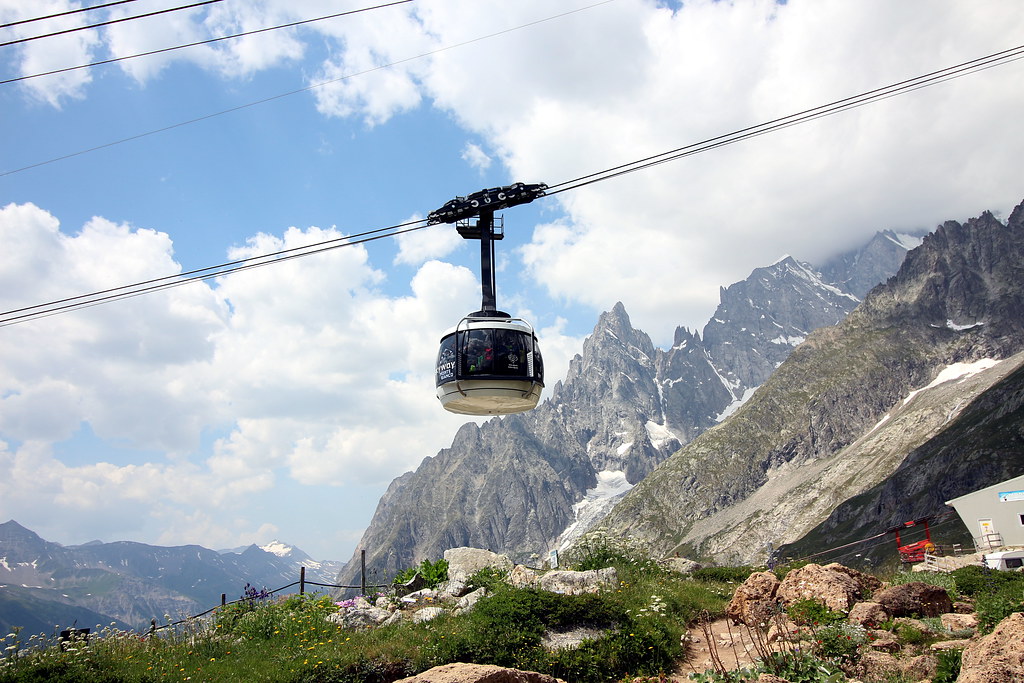AfDB Backs Rwanda’s First Urban Cable Car with $500K for Feasibility Study
This innovative public transport solution is being spearheaded by Ropeways Transit Rwanda Ltd (RTRL), and will be the first aerial urban cable car system in the region.

- Country:
- Ivory Coast
In a landmark step toward revolutionizing urban mobility in sub-Saharan Africa, the African Development Bank (AfDB) has approved a $500,000 grant to fund a feasibility study for the Kigali Urban Cable Car Project—a pioneering 5.5-kilometer aerial transit initiative that could position Rwanda as a continental leader in green, inclusive transport infrastructure.
This innovative public transport solution is being spearheaded by Ropeways Transit Rwanda Ltd (RTRL), and will be the first aerial urban cable car system in the region. The feasibility study, funded through the Urban and Municipal Development Fund (UMDF), a trust fund hosted by the AfDB, marks a significant first phase of the project, laying the groundwork for investment mobilization and implementation planning.
A Climate-Resilient Urban Mobility Milestone
The proposed $100 million cable car project promises to alleviate Kigali’s chronic traffic congestion, reduce greenhouse gas emissions, and connect marginalized communities to the city’s central business district and social amenities. Once complete, the cable car network is expected to transport more than 50,000 passengers daily, with a full end-to-end journey lasting just 15 minutes, significantly improving commute times for thousands of city residents.
Dr. Akinwumi Adesina, President of the AfDB, lauded the project’s potential:
“This transformative project aligns perfectly with the Bank’s vision for sustainable, green, climate-resilient urban mobility infrastructure. It is a scalable model of low-carbon, inclusive public transport that cities across Africa can emulate.”
The cable car system will operate as part of Kigali’s broader transport infrastructure and is designed to support non-motorized and public transport integration, aligning with Rwanda’s vision of a smart, green city.
Priority Corridors and Urban Connectivity
Phase 1 of the Kigali Urban Cable Car Project will consist of two major transit corridors:
-
Nyabugogo Taxi Park to the Central Business District (CBD) Hub
-
Kigali Convention Center to Kigali Sports City, connecting key landmarks such as Amahoro Stadium, BK Arena, and the newly developed Zaria Court
These routes are strategically chosen to connect high-traffic zones, public spaces, and underserved areas, promoting equitable access and improved quality of life for all city dwellers.
Anchored in Climate and Urban Development Goals
The project aligns seamlessly with Rwanda’s climate and infrastructure goals, including:
-
Rwanda’s Green Taxonomy
-
National E-mobility Strategy
-
Climate and Nature Finance Strategy (CNFS)
-
Targeted 38% reduction in greenhouse gas emissions by 2030
-
Goal of net-zero carbon emissions by 2050
The cable car also supports Rwanda’s ambitions under the Sustainable Development Goals (SDGs), particularly SDG 11 (Sustainable Cities and Communities), SDG 13 (Climate Action), and SDG 9 (Industry, Innovation, and Infrastructure).
Public-Private Model and Blended Financing
The project is expected to be implemented through a Public-Private Partnership (PPP) model. According to Imena Munyampenda, Director General of the Rwanda Transport Development Agency, this model ensures both technical expertise and financial sustainability, opening doors for a diverse group of stakeholders.
The total $100 million financing structure will rely on blended financing, including:
-
Grants and concessional loans
-
Technical assistance
-
Commercial funding from key institutions such as:
-
International Finance Corporation (IFC)
-
Africa50
-
Trade and Development Bank (TDB)
-
Africa Finance Corporation (AFC)
-
Private investors
-
Alliance for Green Infrastructure in Africa (AGIA)
-
This layered financing approach is designed to bridge the viability gap and create a bankable infrastructure project with both impact and returns, according to Solomon Quaynor, AfDB Vice President for Private Sector, Infrastructure, and Industrialization.
“This feasibility study is a game-changing milestone. Through the UMDF, AfDB is laying the foundation for an investment-ready green infrastructure asset,” he stated.
Global Inspiration and Local Inclusion
The Kigali cable car system will draw design and implementation lessons from successful aerial transport systems in La Paz, Bolivia, and Singapore, adapting them to local terrain and economic conditions.
In addition to environmental goals, the project emphasizes social equity and inclusiveness, with key features such as:
-
Accessibility for people with disabilities
-
Job creation and training for women, youth, and low-income groups
-
Technology transfer and capacity building
-
Enhanced community engagement throughout project development
A Vision for Africa’s Urban Future
The feasibility study is expected to be completed in 2026, with construction to begin in late 2026 and full commissioning by 2028. Once operational, the cable car will set a precedent for clean, efficient, and inclusive mobility in African cities grappling with urban sprawl, congestion, and climate pressures.
The AfDB views the Kigali Urban Cable Car as a pilot for replication across other rapidly urbanizing cities on the continent. Through technical leadership, strategic financing, and global partnerships, the project exemplifies how African cities can leapfrog to sustainable transport solutions.










